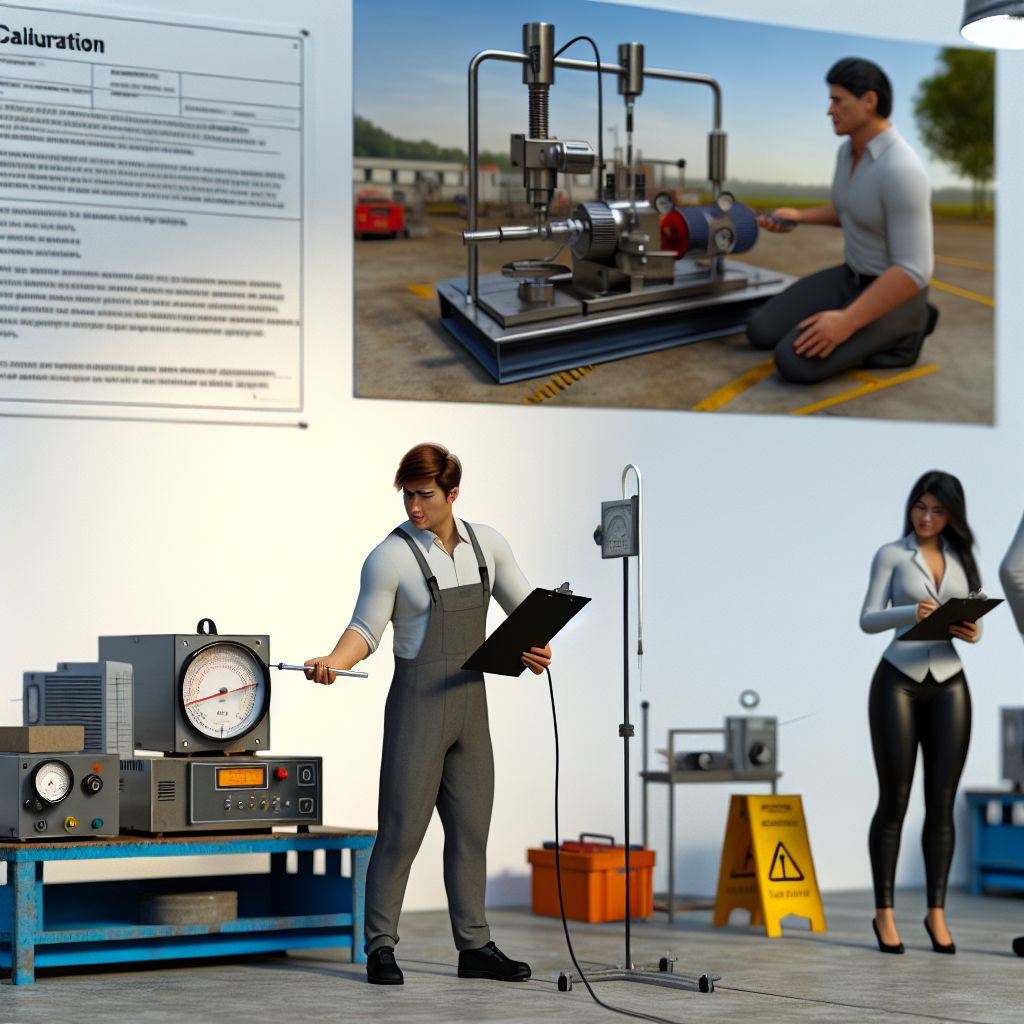Calibrating in the quality management context refers to the process of adjusting, verifying, or fine-tuning measuring instruments, equipment, or devices to ensure they provide accurate and reliable measurements. Calibration is essential in various industries to maintain the precision and consistency of instruments used for quality control, testing, and research. It involves comparing the measurement output of a device to a known reference standard and making necessary adjustments to minimize measurement errors.
Application Areas:

- Manufacturing: In manufacturing, calibration is crucial for maintaining the accuracy of equipment such as weighing scales, thermometers, and pressure gauges used in production processes.
- Laboratory Testing: Laboratories calibrate instruments like spectrophotometers, chromatographs, and pH meters to ensure the accuracy of analytical results.
- Healthcare: Medical devices such as blood pressure monitors and thermometers require regular calibration to provide accurate patient measurements.
- Aerospace: Aircraft and spacecraft instruments, such as altimeters and gyroscopes, undergo calibration to ensure safe and precise navigation.
- Automotive: Calibration is performed on sensors and diagnostic equipment used in vehicle manufacturing and maintenance.
Examples:
- A laboratory technician is calibrating a pipette to ensure accurate volume measurements.
- An automotive technician calibrates the sensors in a vehicle's advanced driver-assistance system for optimal performance.
- A manufacturing plant schedules routine calibration of temperature sensors to maintain product quality.
Risks:
- Failure to calibrate measuring instruments can lead to inaccurate data, potentially causing product defects, safety hazards, or compliance issues.
- Inadequate calibration practices may result in financial losses due to rework, waste, or product recalls.
History and Legal Basics:
Calibration has a long history dating back to ancient civilizations that used standardized units of measurement. Today, various international standards and regulations, such as ISO 17025, govern calibration practices. These standards outline requirements for calibration laboratories, ensuring the traceability of measurements to recognized standards.
Examples of Sentences:
- The technician is responsible for calibrating all the pressure gauges in the facility.
- Before conducting the experiment, the scientist meticulously performed the calibration of the spectrophotometer.
- The laboratory's calibrated equipment guarantees the accuracy of its test results.
- The company invests in regular calibrations to maintain the precision of its measurement tools.
Similar Terms:
- Adjustment
- Verification
- Fine-tuning
- Standardization
In summary, calibrating is a fundamental process in quality management that ensures the reliability and accuracy of measuring instruments and equipment across various industries. By regularly calibrating devices, organizations can trust the data they generate, leading to improved product quality, safety, and compliance with industry standards.

